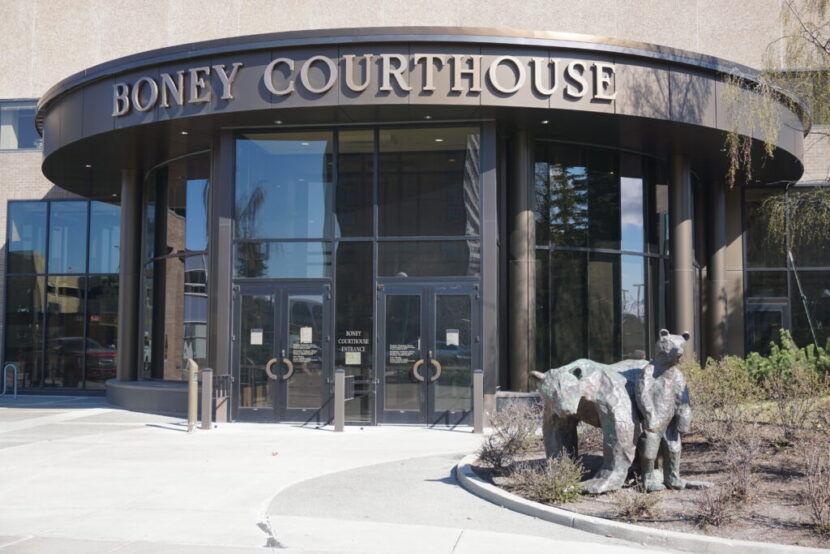
Alaska Legal Services Corp. was awarded a million dollar grant from the National Science Foundation to expand a program that aims to increase access to legal services for people who live in remote areas.
The group has been training nonlawyers, called “community justice workers,” to represent Alaskans in court for some lower level legal issues. Last year, Alaska’s Supreme Court approved a waiver that allows the practice, a decision that drew the support of the state’s bar association.
In rural areas of the state, the lack of trained legal professionals creates what ALSC Executive Director Nikole Nelson calls a “justice gap,” where people with low incomes who have civil legal needs — problems related to debt, domestic violence and housing — do not have access to legal representation.
Nelson said that legal services are “pretty much nonexistent” off of Alaska’s road system, so the nonlawyers are a solution.
“We have over 300 community justice workers who have signed up to take our training courses and to be supervised and are ready to help address this unmet need,” she said.
With the funding, Nelson and her colleagues can train the community justice workers on more complex legal tasks.
ALSC modeled the project on a partnership with the Alaska Native Tribal Health Consortium’s community health aide program, which places health aides in remote communities. The organization piggybacked on that strategy and embedded civil legal services in health care settings, too.
With oversight from attorneys, Nelson said the community justice workers have already helped hundreds of Alaskans get access to justice.
“When people have these unmet civil legal needs, it really impacts their health and their safety, or their housing,” Nelson said. “So people are at risk of losing their homes, they might lose their health care, they might lose their SNAP benefits — you know, a household may not have food because they have an unresolved legal issue.”
For example, community justice workers helped hundreds of Alaskans get access to food stamps while the state was months behind on issuing benefits.
Alaska Legal Services Corp. is working with the University of Minnesota Medical School, the American Bar Foundation Access to Justice Research Initiative and the Alaska Native Tribal Health Consortium.
Matthew Burnett, a senior program officer for the American Bar Foundation, said the program is the first model for using community members to solve what he called a “hidden crisis” of justice access.
“Community-led programs can provide a model for how we start from the bottom up, rather than top down in terms of justice solutions. And that is a huge transformation,” he said. “So rather than making them lawyer-centric or court-centric, we can actually understand the needs of communities.”
It’s a transformation that has promise outside of Alaska, too, which is part of why the National Science Foundation is funding the effort.
“If you can do it in Alaska, you can do it anywhere,” he said.
